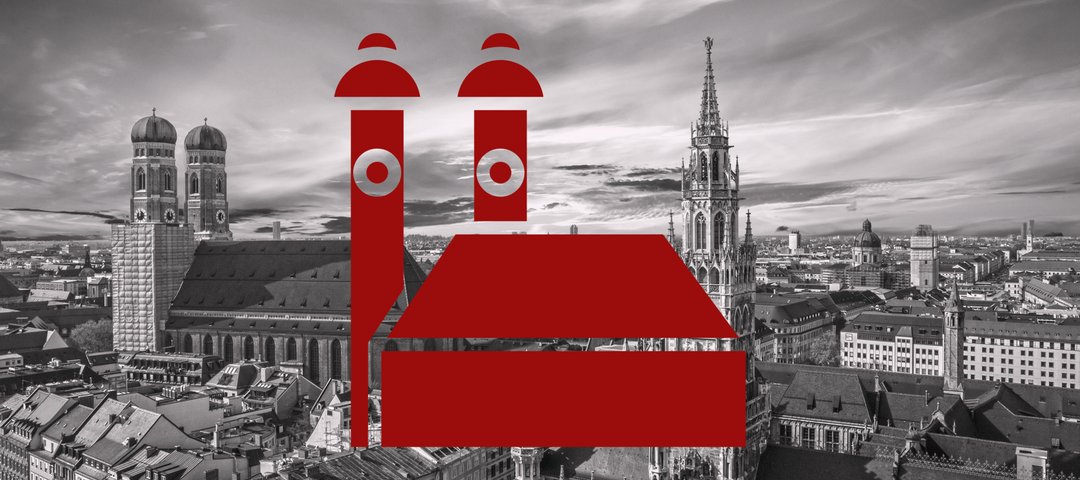Fellowship for Early Career Researchers

The Collegium Carolinum awards visiting fellowships for a month-long research visit to Munich. The offer is directed to younger researchers (whether graduates or post-graduates) working using methodologically or thematically innovative approaches to study of the history and culture of the Bohemian Lands, of Czechoslovakia, the Czech lands or Slovakia and the neighbouring regions.
Opportunities in Munich
The visiting fellowship to Munich provides the opportunity to make use of the research library and the other collections of the Collegium Carolinum. Apart from providing support for all research needs, the institute also provides an excellent location for academic discussion and exchange. Munich as a location – with its libraries, archives and research centres – provides first class facilities for research.
Bursaries
The visiting fellowship is limited to a month-long stay. The amount of the grant will be a single payment of €1,750 for doctoral candidates, while researchers who have already been awarded a doctorate will receive a payment of €2,200. Travel costs (both inward and outward) will be provided up to the cost of a rail ticket (2nd class).
Applications
All applications must include the following materials:
- The completed data sheet
- A letter of motivation, setting out why the study visit to the Collegium Carolinum is necessary for the project being pursued by the candidate (max. 1 page)
- An presentation of the research project, including details on the current state of research, its goals and the work already completed (max. 3 pages)
- Personal details: CV, academic qualification, list of publications, if necessary selected (max. 2 pages)
- University certificates (final)
The period for application will be made known by means of an advertisement.
To the Award guidelines
Past scholarship recipients
-
Anastasiia Luzhanytsia: Ukrainian National Communism in Subcarpathian Rus, Dissertationsprojekt, Slowakische Akademie der Wissenschaften Bratislava; gefördert 2025
-
Vojtěch Pojar: Eugenics in the Late Habsburg Empire: Networks, Discourses, Legacies, Central European University, Wien; gefördert 2024
-
David Smrček: Street Politics and Collective Violence in Cisleithania in 1897, Dissertationsprojekt, Karls-Universität Prag; gefördert 2023
-
Monika Stachová: Kampf um Partizipation. Die slowakische Roma-Bevölkerung im Staatssozialismus und frühen Postsozialismus (1950-1993), Dissertationsprojekt, Karls-Universität Prag; gefördert 2022
-
Kristin Watterott: Kollektive Aktivitäten der tschechischen Surrealisten in den 1970er und 1980er Jahren, Promotionsprojekt, Institut für Kunstgeschichte/Universität Leipzig; gefördert 2021
-
Fabian Jonietz: Meliora latent'. Kunstliebe, Kunstbegehr und klandestine Bildpraktiken (ca. 1450‒1850), Kunsthistorischen Institut in Florenz; gefördert 2020
-
Giulio Salvati: Böhmische Dörfer in Bayern und Istrianer auf Sardinien – über die Ansiedlung von Vertriebenen nach dem Zweiten Weltkrieg, Dissertationsprojekt, New York University; gefördert 2019
-
Rosamund Johnston: Cold War Radio as Mediator Between Government and Society in Czechoslovakia, 1945-1969, Dissertationsprojekt, New York University; gefördert 2018
-
Anton Hruboň: Architect of Genocide: Alexander Mach and the Destruction of Slovak Jews, Post-Doc-Projekt, Univerzita Mateja Bela in Banská Bystrica; gefördert 2018
-
Sebastian Lambertz: Zwischen ideologischer Korrektheit und persönlicher Sinnzuschreibung. Individuelle Perspektiven auf den tschechoslowakischen Staatssozialismus zwischen 1953 und 1963, Dissertationsprojekt, Universität zu Köln; gefördert 2017
-
Victoria Shmidt: Public health as an agent of internal colonialism in interwar Czechoslovakia: Shaping the discourse about the nation’s children, Post-Doc-Projekt, Masaryk-Universität Brno; gefördert 2017
-
Lucie Dušková: The Night and the Night life in Czechoslovakia 1945-1960, Dissertationsprojekt, Karls-Universität Prag; gefördert 2016
-
Filip Herza: Body, Dis/ability and Czech Nationalism in the 19th and 20th Century, Dissertationsprojekt, Karls-Universität Prag; gefördert 2016
-
Sune Bechmann Pedersen: Cold War Holidays: The Politics of Scandinavian Tourism to Eastern Europe, 1955-1990, Post-Doc-Projekt, Universität Lund (Schweden); gefördert 2016
-
Jana Piňosová: Naturschutz als Beitrag zum Aufbau der Tschechoslowakischen Republik 1918-1938, Dissertationsprojekt, Rheinische Friedrich-Wilhelms-Universität Bonn; gefördert 2015
-
Katalin Deme: Die Entwicklung des jüdischen Museumswesens in Ostmitteleuropa zwischen 1993 und 2012: Prag - Budapest - Bratislava. Kontinitäten, Brüche, Neubeginne, Universität Aarhus; gefördert 2014
-
Jaromír Mrňka: Generationsspezifische Grenz-Erfahrungen und der Prozess der Radikalisierung der tschechischen Gesellschaft 1935-1955, Dissertationsprojekt, Karls-Universität Prag; gefördert 2014
-
Claire Morelon: Kriegsalltag, Staatslegitimität und Revolution in Prag, 1914-1920, Dissertationsprojekt, University of Birmingham und Centre d’Histoire de Sciences Po Paris; gefördert 2013
-
Susanne Greiter: Flucht und Vertreibung im Familiengedächtnis, Dissertationsprojekt, Ludwig-Maximilians-Universität München; gefördert 2011/12
-
Martin Modlinger: Approaching Something that Repels: The Terezín Ghetto Artists in History and Literature, Dissertationsprojekt, University of Cambridge; gefördert 2011/12
-
Jitka Balcarová: Von der nationalen "Defensive" zur "Offensive". Die wirtschaftlichen "Schutzvereine" der Deutschen in der ČSR 1918-1938, Dissertationsprojekt, Karls-Universität Prag; gefördert 2009/10
-
Thomas Oellermann: Sozialdemokratisch geprägtes deutsches Arbeitermilieu in der Ersten Tschechoslowakischen Republik, Dissertationsprojekt, Heinrich-Heine-Universität Düsseldorf; gefördert 2007/08
